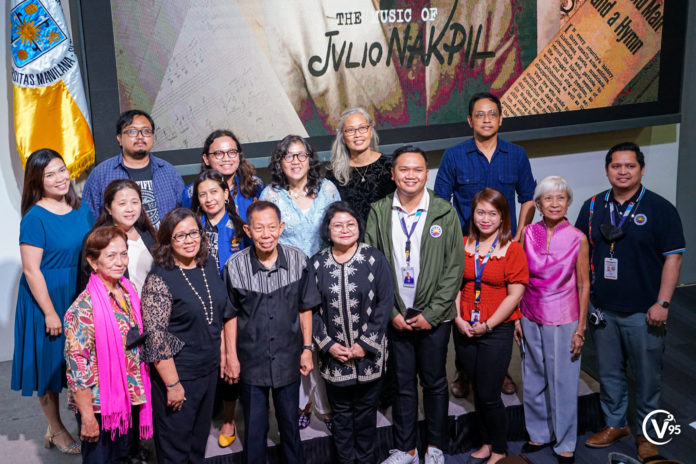
THE UST Research Center for Culture, Arts, and Humanities (RCCAH) has completed a five-year multidisciplinary project on the life and works of composer and revolutionary Julio Nakpil.
Through the “Julio Nakpil @150 Music Project,” the RCCAH has produced two volumes of the musician’s work, four recorded musical albums, a film documentary, and an exhibit at the Bahay Nakpil-Bautista in Quiapo, Manila. The project was completed in May 2022.
RCCAH Director Assoc. Prof. Ma. Alexandra Chua, the project leader, said the musical works of Julio Nakpil formed an integral part of Philippine music.
“There was an imperative need for the music compositions of Nakpil, which has been disenfranchised and marginalized, to be made available to the knowledge and understanding of Filipinos today,” Chua said during the project seminar on Feb. 16.
“His music forms an integral part of the country’s music patrimony and can be utilized in the understanding and teaching of this dynamic period in the history of the country,” she said.
Julio Nakpil is the first Filipino composer of the 19th century with an almost complete surviving catalog of music. He produced 41 works based on the count of musical compositions written for piano, voice, chamber, band, and orchestra.
Among his works are “Kundiman,” “Marangal na Dalit Sa Katagalogan,” “Pahimakas,” and “Recuerdos de Capiz Ob. 8 (1891).”
The “Kundiman” music retrieved by the RCCAH is different from the kundiman popularly known today as Tagalog love songs. Nakpil’s version of “Kundiman” was a transcription of a popular song during his time, adapted from the “Cundiman” structural form that Nakpil localized.
“Marangal Na Dalit Sa Katagalogan” was supposedly written as an anthem for the revolutionary Tagalog Republic of Andres Bonifacio, while “Pahimakas” is a song written to commemorate Rizal’s execution.
“[Nakpil] wrote ‘Pahimakas,‘ which means ‘last farewell.’ Parang ito ang [Mi] Ultimo Adios of Jose Rizal but in Tagalog. In the end, [Nakpil] put the kundiman melody because, according to him, it was the favorite of Jose Rizal,” said Chua.
Nakpil was a Katipunero and a member of “La Liga Filipina,” an organization founded by Jose Rizal, who influenced the musician’s political perspectives that were reflected in his works.
Nakpil’s life and times were encapsulated in his works Salve Patria, Pahimakas, Victory March, and Sueno Eterno, which were all included in the fourth music recording of the project.
The RCCAH also produced two volumes of music editions and four recorded musical albums featuring the composer’s life and compositions.
It released “The Music of Julio Nakpil: A Documentary,” a documentary in which music experts and relatives of the late musician revisited his works.
The albums and documentary were presented with a permanent exhibit at the Bahay Nakpil-Bautista in Quiapo, Manila, for Nakpil’s 155th birth anniversary in 2022.
The Julio Nakpil Music Project was funded by the Salikha Creative Grants from the Commission on Higher Education and the National Commission on Culture and the Arts. H.J.V. Andaya with reports from Angeli Ruth Acosta













